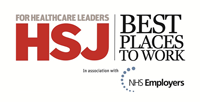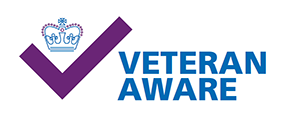Carers Information
Do you look after someone? Are you a carer?
A carer is someone who spends their time giving unpaid support to family or friends. This could be caring for family, a partner or friend who is ill, frail, has physical or mental health problems.
The role of a carer can include activities such as assisting at meal times, helping people to the toilet, helping people to wash and dress or move around the home. Carers may also shop, clean, cook, wash clothes, help with medication, look after money and take people to appointments as well as providing company and emotional support.
When the person you care for comes into hospital, it is natural that you may worry. In our hospitals we are keen to work together with carers as partners in care and to recognise their needs as outlined in Our Carers Pledge.
- Our Carer Pledge
Carers as equal partners
We will make sure that the role you play as a carer is valued by all staff and that we respect, listen to and understand carers and what they do. We will identify carers as early as possible.
Supporting carers
We will let you know of your right to an assessment under the 2014 Care Act and the 2014 Children & Families Act and give information about support and advice services available to you. We know the importance of your needs being met and will support you to have breaks away from the ward when you need them.
Young carers
We will make sure that we involve young carers and will work to support you and recognise the valuable role you play in the health of our patients.
Sharing information
With consent, we will provide information that is timely, appropriate and accessible. We will involve you in decision making while respecting the need for confidentiality.
Having a voice
We will make sure that carers have a voice in the planning and delivery of care and that they are listened to and involved.
Discharge
We will include you appropriately in discharge planning and provide information regarding care and medication.
John’s Campaign
The Trust is committed to John’s Campaign for carers of people with dementia. For the right of people with dementia to be supported by their carers in hospital and the possibility of carers staying overnight if this is what the carer would like to do, noting that this is not a duty but a choice. The opportunity to stay overnight also extends to all carers.
Caring at the end of life
The Trust is committed to supporting and promoting the involvement of those people who are important to our patients to be close to them as they approach the end of their life. This will enable carers and others to visit freely and to stay overnight if they wish.
- Carers Passport
We have worked in collaboration with other Trusts, representatives from local carers’ centres and local Healthwatch groups to develop the new Carers Passport. The Carer passport aims to:
- Aid identification of you as a carer
- Recognise your contribution
- Provide you with a clear offer of support
- Enable you to access a variety of concessions
- Direct you to access a carers assessment
The passport also provides valuable Information about the support in our local community. Caring for someone can be rewarding but also challenging and therefore the passport has details of appropriate support, Carers Centre’s and different resources to support in caring roles.
For more information, or access to support, please visit Carers UK or locally Knowsley carers centre, St Helens carers centre, Halton Carers Centre.
If you are the carer of a patient currently in our Hospital, please identify yourself to a member of staff and the ward manager will discuss your individual needs.
To complete the new Carers Passport please speak to the nurse looking after the person you care for.
- What does a Carers Passport do?
The new Carers Passport can:
- Help us know who is a carer
- Provide a shortcut to knowing what support is needed, without having to ask lots of questions
- Raise awareness of caring
- Provide a clear offer of support
- Recognise how important carers are in patient’s lives
- Provide information to managers or key professionals
- Help in ward discussions
As a carer of a patient in our hospitals you can do any or all of the following:
- Visit outside of normal visiting times
- Help with washing and dressing
- Help with feeding
- Be involved in team meeting discussions, and planning the discharge where appropriate, about the person they care for
- Provide support to the person they care for when having procedures/treatments in the hospital
- Stay with the person they care for during the day and/or night as wished
In addition you will have access to:
- Staff discount in the Spice of Life Restaurant at both Whiston and St Helens Hospitals
- Flexible visiting hours
- Parking concessions: these are available to patients and visitors that are required to regularly attend either hospital. A weekly pass costing £12 can be purchased. These passes will have unlimited use for a full 7-day period.
- Your Local Carer Centres
Caring for someone can be rewarding but also difficult and it is important that you as a carer, receive the correct support. Carers centres provide a lot of services to support you in your caring role. These include;
- Information and advice
- Holistic therapies
- Benefits advice
- Carer’s Emergency Card — this lets emergency services know that you are a carer and will identify the people who would not be able to manage if you were taken ill unexpectedly
- Support to access education and employment
- Counselling
- Social groups
Halton Carers Centre
Tel: 01928 580182
St Helens Carers Centre
Tel: 01744 675 615
http://www.sthelenscarers.org.uk
Knowsley Carers Centre
Tel: 0151 549 1412
http://www.knowsleycarers.co.uk/
If you live out of the local area go to: http:www.carersuk.org to find a carers centre near you. Your local carers centre can help you find services in your area. Carers centres can also help you with a Carer’s Assessment. Details of Carer’s Assessments are not shared and do not affect benefits. It is not necessary to have an assessment completed to use the carers centres.
- What is a Carer’s Assessment?
A Carer’s Assessment is an opportunity to give you as a carer a voice and find out what support or services you may need. Someone from your local council or an organisation the council works with, such as your local carers centre, will fill in the assessment. The assessment will look at how your caring role affects your physical and mental health, work, free time and relationships.
The assessment is usually face to face but is sometimes completed over the phone or online. One of the outcomes from a Carer’s Assessment could be advice on how to access a break from your caring role. Contact your local carers centre or go to http: www.carers.org for more information.
- Support from your GP as a Carer
A caring role can sometimes have an effect on your own physical and mental wellbeing. Letting your GP surgery know you are a carer will help the staff at the practice to support you. As a carer you may be offered a flu vaccination or a health check.






